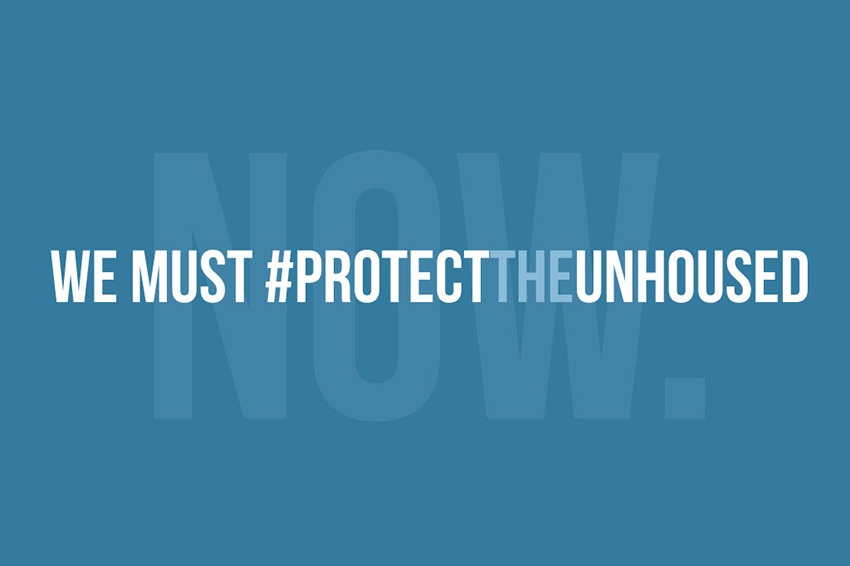The associations together call for groups such as the homeless, migrants, whether housed or not, and other groups who have to survive in precarious conditions to be priority groups for screening at Covid-19, given their high vulnerability. These men and women run a real risk of being contaminated by the virus and their precarious living environment is an aggravating risk factor. The lack of attention for this specific population can only aggravate the epidemiological situation. Urgent and priority measures must be taken to screen and support these populations, and stem the spread of the virus:
1. Protection of the homeless public
In order to ensure the protection of the homeless and vulnerable public in general, it is crucial:
- To promote access to safe accommodation (respecting the standing standards of hygiene) that allows for the isolation of vulnerable groups, to control the potential transmission of the disease (impossible today in congregate shelter);
- To guarantee primary needs are met, including access to food and hygiene;
- To provide the necessary risk reduction equipment (masks, gowns, etc.) for both vulnerable people and the staff assisting them
- To provide access to counselling and support in view of the closure of services and reception centres;
- To protect homeless people from punitive measures by the police in the face of the lack of safe alternatives to public space.
2. Proactive and systematic screening policy
For an obvious public health reason, it is urgent:
- To provide Covid-19 testing in homeless and migrant shelters and create separate spaces for those who are ill to control the spread of the virus;
- To test caregivers working with these vulnerable groups on a daily basis.
3. Keeping people in housing
Faced with the economic impact of the crisis, it is necessary:
- To maintain housing for vulnerable people;
- To put in place structural solutions for access to housing, which has become, more than ever, a public health imperative.
SIGNATORIES (as of 4/15)
- Arrels Fundacio (Spain)
- Associazione Cena dell’Amicizia (Italy)
- Associazione di Volontariato Porta Aperta (Italy)
- Association Internationale des Charités (Belgium)
- Australian Alliance to End Homelessness (Australia)
- A Way Home America (USA)
- Bruss’Help (Belgium)
- Canadian Alliance to End Homelessnes (Canada)
- Caritas International (Belgium)
- Catholic Charities USA
- Catholic Relief Services (USA)
- Community Solutions (USA)
- Coordinamento Toscano Marginalità (Italy)
- Crisis (UK)
- Depaul International
- DoucheFlux (Belgium)
- Dynamo International – Street Workers Network
- FAMVIN Homeless Alliance (USA)
- Fédération européenne des associations nationales travaillant avec les sans-abri (FEANTSA, Europe)
- Fio.PSD (Italy)
- Front commun des SDF (Belgium)
- Funders Together to End Homelessness (USA)
- Hogar Sì (Spain)
- Infirmiers de Rue (Belgium)
- Institute of Global Homelessness (USA)
- Lama asbl (Belgium)
- Le Relais Social Urbain de Charleroi (Belgium)
- Le Relais Social Urbain de La Louvière (Belgium)
- Ligue des Droits Humains (Belgium)
- Médecins du Monde (Belgium)
- Médecins Sans Frontières/Artsen Zonder Grenzen (Belgium)
- National Alliance to End Homelessness (USA)
- National Law Center on Homelessness & Poverty (USA)
- Parc Sanitari Sant Joan de Deu (Spain)
- Plateforme citoyenne / Bxlrefugees (Belgium)
- Prima civil association (Slovakia)
- Samu Social (Belgium)
- Shekinah (UK)
- Social Bite (UK)
- Steunpunt Mens en Samenleving (Belgium)
- STOPA Slovensko (Slovakia)
- The International Vincentian Family (USA)
- The World’s Big Sleep Out
- Udenfor Projekt (Danemark)
- Welcoming Australia (Australia)
- Western Australian Alliance to End Homelessness (Australia)
- World Habitat


